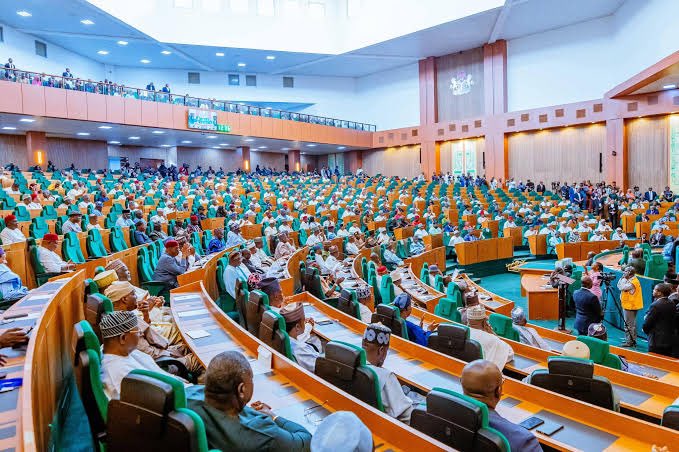Nigeria's House of Representatives Approves Tax Reform Bills, Rejects VAT Increase
Posted 08:40 PM, Thursday March 13, 2025 2 min(s) read

Photo by: Emmanuel Onminyi
ABUJA, Mar. 13 (AGCNewsNet) – Nigeria’s House of Representatives has adopted the Committee on Finance’s report on the Tax Reform Bills, rejecting a proposed increase in Value-Added Tax (VAT) and adjusting the tax revenue sharing formula to allocate more funds to state governments.
The lawmakers reviewed the report clause by clause before approving it, following a motion by Committee Chairman, James Faleke.
Section 146 of the Nigeria Tax Bill had proposed a phased VAT increase from the current 7.5% to 12.5% in 2026 and 15% by 2030. However, the House Committee on Finance recommended keeping VAT at 7.5%, citing concerns from stakeholders, including the Trade Union Congress (TUC), over the potential burden on low-income earners.
"The income tax provision already provides for lower taxes for low-income earners, bringing much-needed relief to vulnerable Nigerians," the committee stated.
President Bola Tinubu presented four Tax Reform Bills—the Nigeria Tax Bill, the Tax Administration Bill, the Joint Revenue Board Establishment Bill, and the Nigeria Revenue Service Bill—before lawmakers on October 3, 2024. The bills aim to overhaul Nigeria’s tax administration system, including renaming the country's tax revenue administrator.
The proposals sparked widespread debate, with over 100 civil society groups and other stakeholders contributing feedback during a public hearing. The Nigeria Customs Service (NCS) flagged provisions in the bill that conflicted with the existing Customs Act.
The House also revised the VAT revenue-sharing model among federal, state, and local governments. The initial proposal allocated 15% to the federal government, 50% to state governments and the Federal Capital Territory (FCT), and 10% to local governments.
Following pressure from the Nigerian Governors Forum (NGF), lawmakers adjusted the formula, reducing the federal government’s share to 10%, increasing the state governments’ share to 55%, while keeping local governments at 35%.
"These bills underwent three full days of public hearings, with input from over 80 key stakeholders. Afterwards, we held an eight-day retreat to debate each clause," Faleke said.
The bills now await final approval from the Senate and President Tinubu’s assent.
Meanwhile, the Housing Development Advocacy Network (HDAN) has urged the federal government to include tax reliefs for real estate developers in the reforms. The group argued that high demand for affordable housing, coupled with declining purchasing power, necessitates incentives to attract investment and lower housing costs.
Stay connected with AGC NewsNet for the latest news from Africa